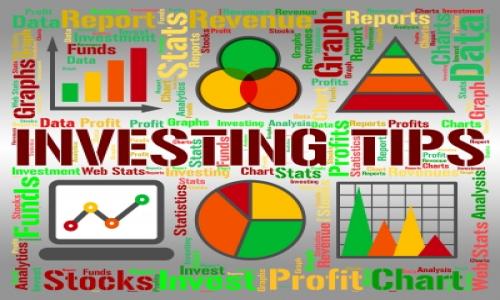Bond funds are mutual funds that invest in bonds. The funds can invest in government or corporate bonds of short, medium, or long-term maturity. This article explores investing in bond funds versus individual bonds.
The Advantages of Bond Funds Versus Bonds
Low Entry: One can begin investing in bond funds with as little as five hundred dollars as opposed to a minimum of a thousand dollars to buy a traditional bond. You can however, purchase zero coupon bonds for as low as a couple hundred dollars for long bonds. Sometimes the best bonds and prices mean shelling out a bit more cash at the start, like five thousand or even ten thousand dollars. Your subsequent investments into bond funds are even lower, often as low as fifty or a hundred dollars, while you still have to cough up a thousand to purchase another single bond issue.
Diversification: Here's the biggie. Owning one single bond issue does not give you a diversified portfolio. You will need to pick up four to six issues to really be diversified, which amounts to four to six thousand dollars as opposed to five hundred dollars in a bond fund. A bond fund will own hundreds or more of different bonds from different issuers and with differing levels of risk.
Liquidity: While both mutual funds and single issue bonds are both liquid securities one cannot easily tell what your bond is valued at on the secondary market. On the other hand, simply punch in your fund's symbol and you will know what you are going to get from a sale right then.
Flexibility: For those of you who go with bond funds you do have the ability to switch into any other of the funds within the family of funds for little or no fees. In a uncertain and volatile market that alone may give you added peace of mind. If you have single bond issues and decide to go into a money market fund for example, you will incur a nominal cost to sell your bonds and some expenses associated with mutual funds. You may also take a loss when selling your bonds.
Disadvantages of Bond Funds Versus Bonds
Professional Management: Once you have invested in a bond fund you put your money into the hands of a professional manager and your returns are based upon the managers ability to make the right choices for the fund. When you buy a single bond issue, you know exactly what your risk is whereas in a fund you have the additional risk of the managers. Suddenly your double A bond does not seem quite as safe as it once did.
Fees: I will be brief as we have already covered bond fund fees. There is no such thing as a free lunch, not even in no load money market funds. Funds are not charities and they will extract their fees in the NAV of the fund if nothing else. Also keep in mind that you still pay the fees even in poor years and that just magnifies your over-all losses.
Something you may not know: It is quite possible to lose money in your bond fund and pay taxes on a capital gain that you did not enjoy. Not only do you loose money, you pay taxes on money that someone else enjoyed. Find out when your particular fund makes its capital gains distribution and get in right after it. Keep in mind that mutual funds are constantly receiving cash from investors and constantly paying out dividends, capital gains or just straight cash to investors who want to withdraw money, so they have to have a lot of their assets in cash. Remember that money that is in cash is money that is not working for you. Compare bond funds and see what percentages they are required to have in cash and what their current holdings are.
Misleading Advertising: If a fund claims they are an income fund, the SEC requires them to invest within those parameters. But what about the remaining twenty percent. What is responsible for your fund's growth? Is it the twenty percent highly volatile tech stocks that are responsible for it? If so, do you really want to own those equities in your portfolio? What about your income fund? Are the remaining twenty percent that are in corporate preferred stocks responsible for all the income? If you are buying into a bond fund find out where its performance comes from. Suddenly your prospective fund does not fit with your risk profile. Find a bond fund that is aligned with your risk tolerance.
Rankings: You have heard by now the saying, past performance does not guarantee future results, so take that to heart. Companies that rank mutual funds rank soley on past performance. Look at the fund you are interested in. What holdings are responsible for that income, or growth you would like to have? Do those holdings fit within your risk profile?
Over diversification: Let's use a stock fund for a moment as an example. If your equity mutual fund holds four stocks and one of them sky-rockets while the other three sit, or even go down, the effect that stellar stock is having on your portfolio is immense. Now take your portfolio and diversify it with two hundred individual stocks. A huge run up on your favorite stock will have little impact on the overall portfolio. While having a fund with many different holdings may lower the risk, your winners have a lesser impact on the overall portfolio. It just takes too many winners to keep up the growth in the portfolio. Specifically with your bond fund, make sure you do not have a huge portfolio of Kern County School Bonds and nothing else. Have several types of bonds, some zeros, some revenue bonds, general obligation bonds, government agency bonds, etc. Maturity date is another way to diversify your portfolio.
In summary, these last two articles should arm you with enough information to go out and purchase your bond funds, and be relatively certain you have made good, well informed choices. Your chance of falling into any of the pitfalls associated with bond mutual funds will be significantly lowered.
Here are some additional bond resources that you may wish to access:
- Corporate Bonds
- Convertible Bonds
- Treasury Bonds
- I Bonds
- Municipal Bonds
- Agency Bonds
- Build America Bonds




Add your Comment
or use your BestCashCow account